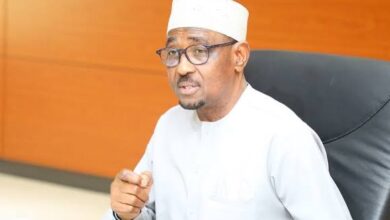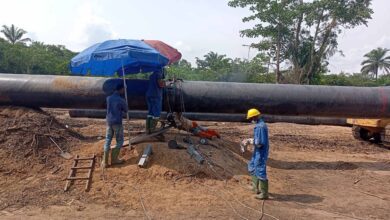Sahara Group Earmarks $1bn To Expand LPG Access In Nigeria, Others

Leading energy and infrastructure conglomerate, operating in Nigeria and other African countries, Sahara Group has disclosed its plans to inject about $1billion in five years to expand access to Liquefied Petroleum Gas (LPG) in Nigeria and other African countries.
The Director, Governance and Sustainability of Sahara Group, Dr. Ejiro Gray disclosed the company’s plans at a Learning Session organised by the Group for the Energy Correspondents Association of Nigeria (ECAN), journalists covering the oil and gas sector in Abuja on Wednesday.
Dr. Gray who said the group currently has four LPG vessels, two in South Korea, disclosed that it was also working to boost regional supply in Nigeria and across West Africa.
She noted that the group was planning to within the next few years, build up 75,000 metric tons capacity for LPG.
“We’re already building one. We’re building a storage plant in Côte d’Ivoire And the essence is to boost internal supply, and also to neighbouring landlocked countries around the region. We’re also doing that with Nigeria, also to boost supply. So LPG, we’re very eager”, she said.
On Compressed Natural Gas (CNG), she said, the group is not considering investment yet due to lack of infrastructure network.
“CNG, the reason we have not yet invested is that there is no infrastructure. We don’t have that infrastructure network in Nigeria. We need the right support to go into that investment. We can’t do it alone”, she said.
Dr. Gray said, the continent of Africa should take energy transition more seriously and self-develop to reduce the dependency on the West.
“Taking it more seriously is, what is our agenda as a continent? How intentional are we about driving development?”, she questioned.
She said, the continent can not continue to push the narrative of the West towards climate change but should push its own agenda by using what it has to industralise.
“We must push our own narrative because climate change is the least of our problems. We need to use what we have to industralise. Let’s address it from our own perspective, from what works for us. Let’s prioritise our development before thinking about climate change.
What is our own strategy? We can not sacrifice development for climate change”, she said.
Gray said, the continent of Africa has viable solutions with the abundance of natural gas, solar, wind, and hydro therefore, should be used to develop.
On gas, she said, the focus of the government is on flare and export while domestic utilisation is lacking, therefore, urged the government to de-risk the gas sector so as to attract the needed investments.
Speaking on the role of the media, she said, the media could help to raise awareness about the importance of transitioning to renewable energy sources and the benefits it can bring to African countries. This, she said, could be done through news, articles, feature stories, and opinion pieces.
She said, the media could hold African governments accountable for their energy policies and actions. They could highlight the need for policies that support renewable energy and make it more accessible to the average African citizen.
She also called on the media to facilitate public debate on energy-related issues and provide a platform for diverse voices and perspectives to be heard. This, she said, could help to generate new ideas and solutions for Africa’s energy transition.
On why Energy Transition, she said, it reduces greenhouse emission, improves public health, uses inexhaustible energy, and create jobs and other economic benefits.






